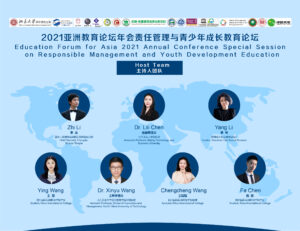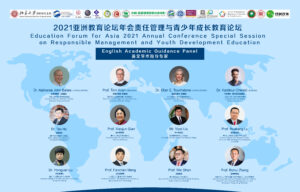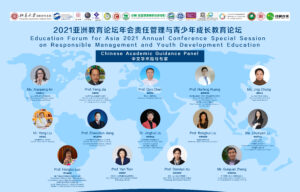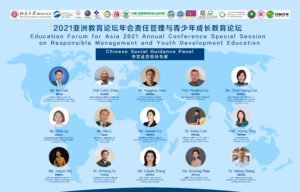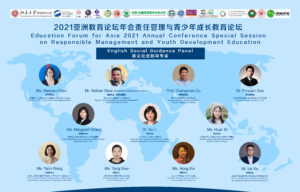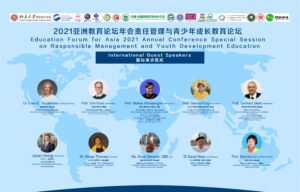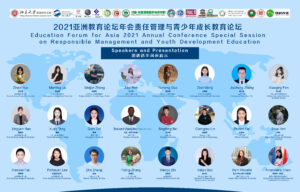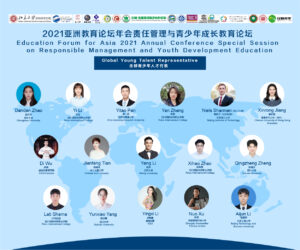Education Forum for Asia 2021
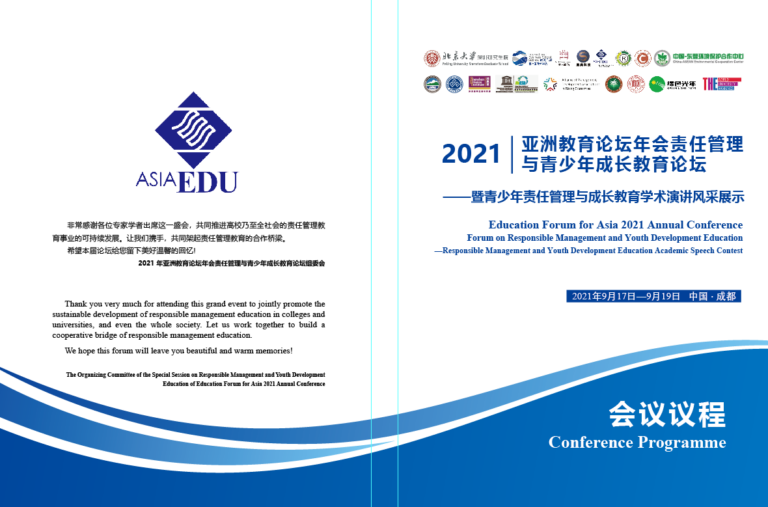
Articles of the education forum for asia 2021
FECHA 2020
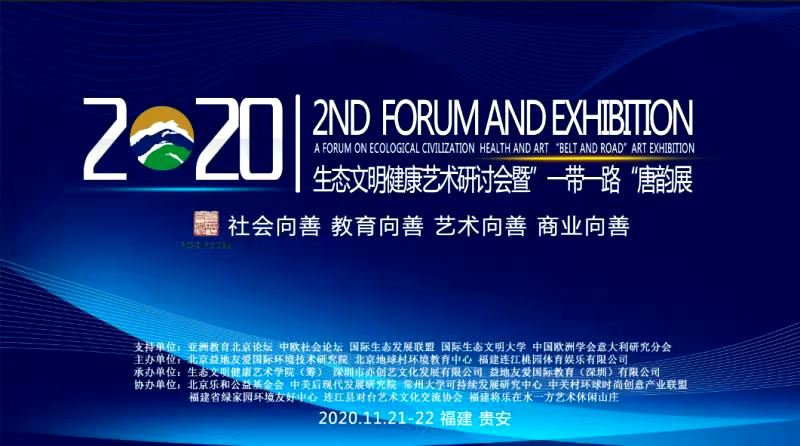
Forum introduction
For the purpose of actively carrying out the construction of "ecological civilization" advocated by the Chinese government, deeply excavating the implications of the green development of health and art, further promoting theoretical research and industrial development, Ecological Development Union International (EDUI) has organized the Forum of Ecological Civilization on Health and Art (FECHA) with the support of all sectors of society.
Read More
Based on the social foundation of the World Green Forum, which was founded in 2011, FECHA advocates the principle of sustainable development and contributes suggestions for the construction of ecological civilization, focusing on major social issues such as health education, culture and art, green development and business for good. A large number of experts and scholars have actively participated in this forum and are committed to the construction of ecological civilization, including Professor John Kobu Jr., a world-renowned ecological economist, Professor Mohan Munasinghe, who was a Vice-Chair on the Intergovernmental Panel on Climate Change (IPCC), which shared the 2007 Nobel Peace Prize, Professor Gerhard Stahl, the former Secretary-General of the Committee of the Regions of the European Union, Professor Zhang Xiangshu, a well-known Chinese ecological economist, Dr. Liao Xiaoyi, the Sophie Prize winner for InternationalEnvironment and Development, Dr. Chen Yan, the President of International Campus Towards An Ecological Civilization, Professor Liu Manhong, the global co-founder of EDUI, Research Fellow Hongbo Luo, former Vice-President of the European Institute of the Chinese Academy of Social Sciences, Professor Huang Haifeng, Board Member of PRME Steering Committee by United Nations Global Compact and entrepreneurs Ms. Jiang Peiqi and others. It will bring together global wisdom to explore how the integration of health management, culture, art and ecological civilization can further promote the construction of ecological civilization.
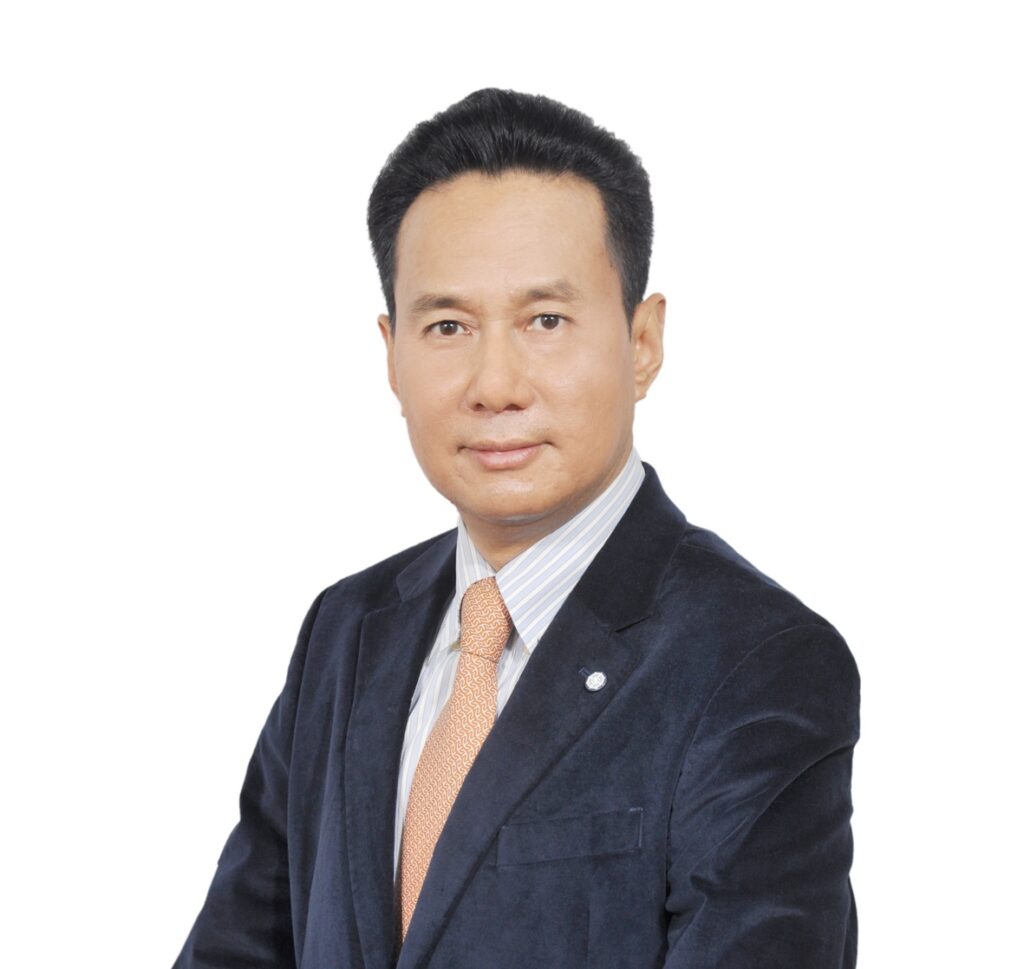
Prof. haifeng huang
Steering Comittee Board Member, Principles of Education for
Responsibility Management (PRME) by United Nations
Global Compact
Welcome To Spring Of Ecological
By building the "EDUI XIAGUANG Library" and "Pay it Forward" projects with all walks of life and adhering to the concept of "Don't think small", we have raised millions of yuan worth of funds, equipment, books and study cards; more than 100 scholars, entrepreneurs and young students from home and abroad formed an eco-education team which has endured for more than a decade, going into remote mountainous areas to pass on the concept of ecological civilization.

Messages
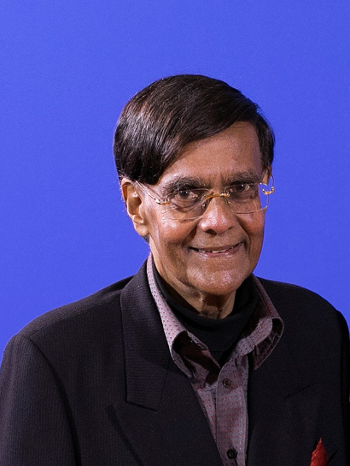
Prof. Dr. mohan
Munasinghe
Principal Consultant, EDUI Global
Talented Artists, Distinguished Colleagues and Dear Friends, Sorry I cannot visit you in beautiful Fuzhou, because of coronavirus. It is my privilege to address you, virtually. This second forum focuses on key themes including health, art, and BRI to build the global eco-civilization. Thanks and congratulations to the organisers, especially your leader Prof. Haifeng Huang and Ms.Magaret Ching , for holding the meeting despite the problems caused by the pandemic. I have been a good friend of EDUI for many years, and am happy to support this outstanding initiative.
Sustainable development is the major global challenge facing us, as recognized by the UN 2030 Agenda and 17 sustainable development goals (SDG). Health is a key SDG, and the rapid global spread of Covid-19 is an urgent reminder that we need sustainability more than ever today. The pandemic is mother nature ’ s way of reminding us that our current activities are unsustainable. Fortunately, China has shown global leadership by successfully controlling the disease, because President Xi took decisive action that put people first, relying on advanced scientific knowledge, robust health services, and exceptional trust and cooperation between government and citizens. We are all inter-connected on one planet. We must unite to save the earth and ourselves. Art is the key to harmonizing humanity across all cultures. At the 1992 Rio Earth Summit almost 30 years ago, I first proposed the sustainable development triangle which harmonizes economy, environment and society. First, we need economic growth to help billions of poor people. Second, Covid-19 also reminds us to balance economic progress with environmental protection. Third, the pandemic confirms that social solidarity and cooperation are equally important. This is my Balanced Inclusive Green Growth (BIGG) path, which truly harmonizes society, environment and economy, to help us achieve global eco-civilization. At the Rio+20 Earth Summit, I also launched Sustainomusica in 2012 – a network of musicians and artists for sustainable development, which reaches millions of young people. Please join us! Implementing the UN SDG is essential using BIGG. China is a global role model through action and example. I salute the great progress you have made in past decades, socially by raising 800 million people out of poverty; economically by demonstrating remarkable growth; and environmentally by reducing natural resource degradation. Through “the belt and road initiative” or BRI, China is helping humanity achieve a synthesis of civilizations and sustainable development, especially in poorer countries. I am proud to support this event and wish you all success. As leading artists and sustainability experts, I am confident that you will help us to keep our dreams alive, by leading the way to balance inclusive green growth (BIGG) and the global eco-civilization.
Xie xie, Sthuthi, Thank you.
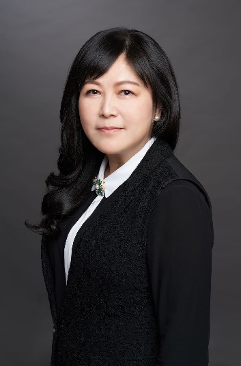
Ms. Margaret Chiang
General Secretary, EDUI Asia
Dear Ladies and Gentlemen,First of all, I want to express how profoundly grateful I am for everyone who is joining us today, either on site or online, to participate in the 2nd Forum of Ecological Civilization for Health and Art, especially amidst the global pandemic. This indeed is priceless! I am also thankful for Professor Huang introducing me to EDUI and one philanthropic story after another about this organization, which touched me deeply and happened to coincide with my late father’s honorable intentions for this precious land.
My father often spoke of his deep love for his proud heritage, his native country and hometown, and, most of all, for the great Mother Earth that nurtured all humans—these all drove him to endure and overcome numerous hardships and hurdles to create this eco heaven. This beautiful ecological environment we now enjoy is his greatest gift and tribute to humanity. Thank you, my beloved father, for allowing all guests here today to witness this delightful moment and hopefully inspire us to work together to expand this Eco “Heaven on Earth” with the spirit in which HE envisioned. The core values of EDUI and our corporation, as founded by my father, which serve to protect our God-given natural environment, are a perfect match, to the extent that it represents an inevitable “marriage” of the two entities. More importantly, with the existential threats facing us, i.e., global climate change and COVID, there is an urgent need for this unity! But let’s keep things in perspective: These realities, though harsh and threatening, present more than only dangers; they present opportunities for those who are in positions of influence and facilitating change—meaningful and benevolent change. All of you here are aware : We can no longer ignore nature’s warnings; we must reflect, plan, and act before it’s too late. We must ask ourselves what can human beings do about it? What can companies do about it? There’s only one planet, and it’s our planet. Thus, sustainability becomes crucial. And as a corporation, we must carry out and carry on this Corporate Social Responsibility vision as well as our mission! From this point forward, THIS is the home for EDUI. And we will unite our power and resources to create what will become an ecological dream come true for all of us. And now, it is my honor and pleasure to proudly announce the opening of the 2nd Forum of Ecological Civilization for Health and Art!
Thank you!
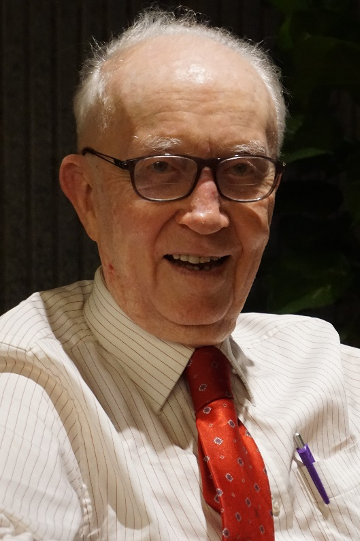
Prof. Dr. John B. Cobb, Jr.
Honorary Chairman, EDUI Global
Congratulations on emphasizing health and art in your reflections on ecological civilization. Too often we talk mainly about overcoming those features of modernity that pose a great threat for the now imminent future. That is understandable. But we will not move to an ecological civilization only from fear of alternatives. It must be something to hope for. Health and Art are central features of civilization that need full consideration. We long for both health and art.
There has, of course, been some discussion of these topics in the United States. Viewing healing from a process perspective we note that modernity has tended to look for single causes of illhealth and develop specific responses to those single causes. For a while, when I went to the doctor I was almost always treated with anti-biotics. Doctors had found the cause of disease. Only gradually did they realize that while killing the cause of the disease they were also killing what made us healthy.
From a process perspective, no condition arises from a single cause. Everything arises from the whole of the past. Traditional Chinese healing has dealt typically with the inclusive wellbeing of the patient. Process thought agrees. On the other hand, traditional Chinese science never got very far with chemistry, and the chemical composition of things turns out to be a very important feature of the bodily condition about which Western science can teach us a great deal. Postmodern thought will add all this information to classical Chinese wisdom. In an ecological civilization healing will be even more holistic than it has long been in China.
Many process thinkers in the West have given little attention to art. Fortunately, there have been exceptions. Whitehead did not write extensively about it, but his reflections on intrinsic value point especially to beauty. He invites us to think of “God” as the poet of the world. He found in the Romantic poets, especially in Wordsworth, an anticipation of his own insights.
Charles Hartshorne was a birdlover. He had a great collection of birdsong, and he studied these with keen interest. Modern thought treats bird song as having only a practical function. Birds sing to defend their territory or attract a mate. Hartshorne did not question that there were practical reasons for birds to sing, but he believed that they also sang because they enjoyed it. He cared about the inner life of birds.
He thought that if enjoyment was a motivation, that birds with complex songs would pause a shorter period between them. Birds limited to very simple songs would become bored by quick repetition. He showed that the evidence strongly supported this hypothesis.
Although very few process folk belong to the “design” community, it is often in that community that process thinking receives the warmest welcome. In the United States, many students of design want to help design an ecological civilization. I hope the same is true in China. If so, please welcome them into your society. They have much to contribute.
What is especially interesting is that you seem to connect health and art. I look forward to learning how you do so. I sense an important relation through what Chinese have long emphasized: harmony. Certainly, harmony is important for an ecological civilization.
May you lead the world not only into the economics of ecological civilization and the rethinking of civilized human beings as fully participant in nature, but also in the integral health of people and society and the realization of intrinsic value in the arts.
May you have a great conference!
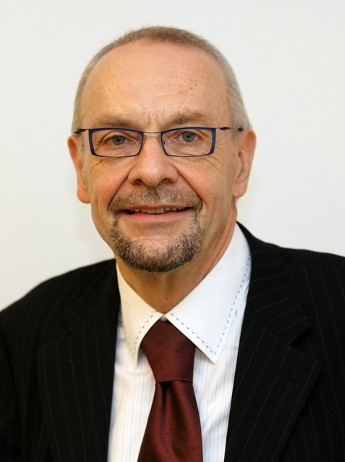
Prof. Gerhard Stahl
Former Secretary General of the European Commission
We are in exceptional times. The spread of the Covid 19 virus created an international health crisis and an international economic crisis. The globalized world, with regular international travelling came almost to a halt. Whereas in China the economy and the normal live come back, other parts of the world are still struggling with the pandemic.
The closure of borders and the lock downs were a shock. It showed that our globalized and interlinked economy and our societies are vulnerable. I never would have thought, that it will became so difficult to move around and to cross national borders. But to stay behind borders and to limit the interest to national policies cannot be a solution. Many people understand that the answer to this global crisis is international cooperation and solidarity and not fragmented national responses. The virus has no nationality and is not stopped by national borders. The close international cooperation between researchers, scientists and health experts to understand this new virus, to develop viable tests and to work on vaccines is essential for winning the fight against this pandemic. But we are also confronted with other challenges where international cooperation is essential. The change of our climate, with higher average temperature, increased natural disasters, the rises of the sea level, the destruction of biodiversity poses an existential threat to our planet. For the long-term survival of humanity we have to change our economic model. On the international level Europe and China are the main protagonists for this fundamental change. This could be seen in the COP 21 UN-Conference in Paris in 2015. The Chinese and European governments accepted binding commitments to achieve a reduction of CO2 emissions and to make progress towards a sustainable future. Unfortunately the United States Government under President Trump has withdrawn. But we will not succeed with governmental commitments alone, if the behavior of business and consumers will not change. Our societies have to change; the companies and the mindset of people have to change. New thinking is needed to prepare a sustainable development of our societies. We have to stop short-term profit maximization of companies that neglect the social and environmental consequences. We have to replace a shareholder orientation with a stakeholder orientation. In other words we need an ecological civilization and not a consumption based society. If in one of the richest and biggest economies in the world, the United States, average life expectation starts to go down, than we can see how urgent it is to put health, green development and sustainable business in the center of the debate. I am very impressed that the Forum for Ecological Civilization will already decide on some operational steps to shape this debate. The establishment of the Academy of Ecological Civilization for Health and Art can contribute to a holistic understanding of health. The Academy can take into account the long tradition of Chinese Medicine and social and behavioral aspects of modern societies. The publication of the monograph of Business Ethics can help manager to overcome traditional ideas of business. Some of you might remember the famous sentence of the American liberal Economist and Nobel price winner, Milton Friedman: “The business of business is business”. This narrow definition of business has to be replaced by a new understanding of sustainable business. A company manager, an investor is also responsible for the social and environmental consequences of his or her economic activities.
I wish you a successful Forum.I wish you a successful Forum.
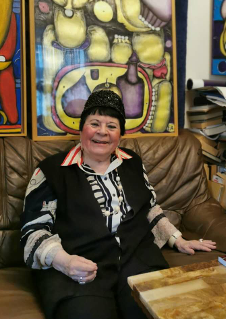
Emma Andijewska
World-renowned painter, writer and poet
With excitement, I would like to extend my warmest greetings from Germany, the most beautiful ecological environment in Europe, to Chinese friends far away in Asia! Knowing that you are holding the “The 2nd Forum of Ecological Civilization on Health and Art” in Fuzhou, I think the topic of ecological civilization is particularly important in today’s complex world. Now that the epidemic is endangering the survival and development of human beings, health will become the most important guarantee for the sustainability of human society, and art will become the link that connects the harmonious development of human society.
I have been engaged in art work for decades. In my life for more than 80 years, I have devoted myself to art creation almost every day. Art is the soul of life. I observe society from the perspective of ecology and nature, hoping to show everyone my oil paintings. My work is collected by many museums, and it belongs to human beings. I will show some of my paintings to strongly support the holding of this forum and art exhibition. I am convinced that the exchange of art will help make peace and reduce conflicts. Only with mutual respect can human beings coexist peacefully. From this perspective, this forum will link ecology, civilization, health and art together. This forum is the cry full of wisdom and justice from civil society, which has historical and practical significance.
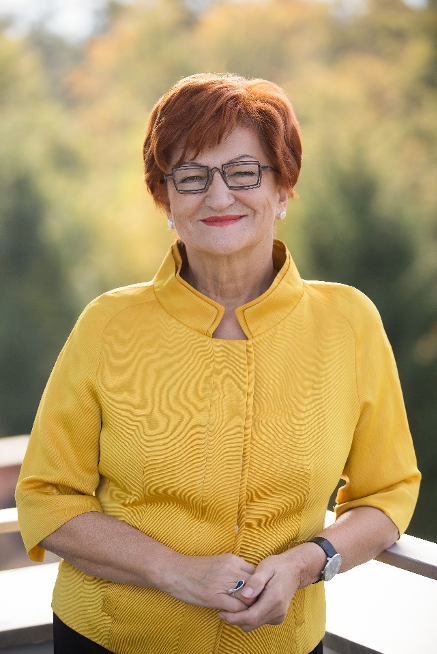
Prof. Danica Purg
President of IEDC-Bled School of Management, Slovenia
Through popular representation of the so-called high art, it has become a common notion that art, its aesthetics and its language have aligned with the culture of exclusion. It became an increasingly dominant perception that art, in order to understand it, to appreciate it, and above all, to be able to express through art, is reserved for the selected few. This is no coincidence. While cultural globalization too often reduces different ways of artistic expression in music, film, design, etc. to a simple market commodity through popular culture, the “real” art is moved away from us – only accessible behind the walls of museums, often protected and sometimes distanced from us by security ropes or security glass.
Working from the office in the picturesque IEDC-Bled School of Management, Slovenia, where every classroom, every hallways and every office looks more like an art gallery than a business school, it is easy to forget that for the majority it is not so easy to really see and feel art, and nearly impossible to have it as part of their everyday lives.
But I would like us to challenge that notion.
I would argue that if you can pinch clay or hold a pencil, if you can touch, see, smell or hear, you are in fact not a stranger to art. And you should not be. Because through art, if done right, even people who do not view themselves as creative can reconnect to that childlike sense of play and enjoyment they had when they got their first box of crayons in the kindergarten.
But this is not art for art’s sakes – “l’art pour l’art”. It is art that helps us see, hear, understand, learn and cooperate. And especially today, in the midst of the global health crisis, we should not forget that art may also help us to heal. I remember the that children, victims of the war in Bosnia and Herzegovina (1992-1996) went to music academy in town of Mostar, supported by the famous opera singer Luciano Pavarotti. When I visited this music school, I saw how music could heal children. And the same I witnessed in Croatia, where at the Island of Brioni, the famous British composer Nigel Osborne, who had a great success with music school, in frame of Ulysses theatre, for many children from South East Europe who did music theatre to get healthier and better.
The same goes concerning the translation of mindset in general. While exercise engages our bodies, and meditation helps us clear our minds, being engaged in creating art helps us accesses both our mind and our body ad the same time. It is hard to get stuck in fear when you are creating a piece of art. Instead, you experience a grounding, present and rewarding sense of connecting with yourself. If you can learn to engage with and to interact with your art – asking it questions, engaging in a dialogue with your creation and uncovering information about yourself, this can become an immensely powerful healing and transformational process not only for ourselves, but even for the society in its broadest sense.
In our institution, IEDC-Bled School of Management, which is considered a “creative environment for creative leadership” we hope to help students to transform, not only to learn. And art is convincingly helping students and executives to learn how to listen differently, how to observe, how to feel better. And how to lead “beautifully”.
I trust that this Forum is an important step towards such a future and I wish everyone to have a great event.
I would also like to congratulate all of the involved in the establishment of The Academy of Ecological Civilization Health and Art. I wish you great success, and I hope, that we will find a way to cooperate in many interesting projects in the future.
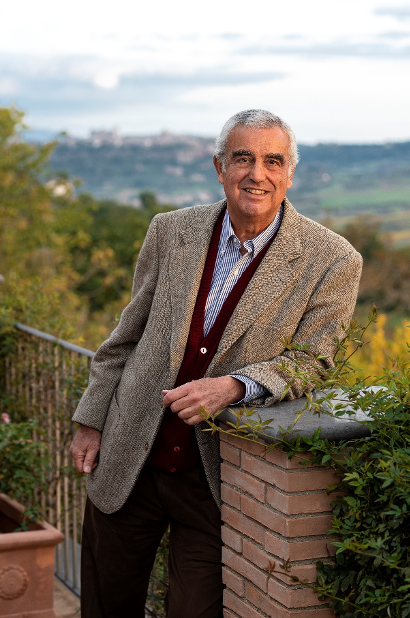
Adrian Misarti
General Secretary, EDUI Italy
I thank you all for giving me this opportunity to greet you on the occasion of this wonderful and beautifully located EDUI event. Sincere congratulations to you all on the establishment of the Academy of Ecological Civilization for Health and Art. I have followed EDUI’s growth since being introduced to the Association by my very good friend, Professor Haifeng Huang, more than five years ago. I have seen the group’s commitment to the development of important ecologically related programs, which we know are the most fundamental and vital for the continued wellbeing of our planet.
Your efforts and the spirit of friendship and community with which you work and progress have caused me to feel honored to come to know many of you, and to be grateful for your friendly welcome whenever we have been together.
As many of you know, I have been engaged for some time in the promotion of an educational project based in the very scenic, small city of Orvieto, which is also located in a relatively ecologically sound agricultural and somewhat forested territory.
I had come to take the beauty of my surroundings for granted. And in fact Professor Huang was the first friend to point out the extent to which our area is still ecologically intact. He inspired me to direct our search for financial and educational partners towards those whose study or research priorities are ecologically oriented. I am sure that this will enhance the relevance of our project, called Orvieto Global Campus ( OGC, for short ), not only in the present but, more importantly, for the future.
In this regard, it is striking to note that although separated by geography, history and cultural background, we have independently committed to initiatives based on a very similar worldview, and aimed at the achievement of very similar objectives.
It is sufficient to view the following excerpts from our OGC Mission Statement to observe that the name itself, Academy of Ecological Civilization for Health and Art, indicates a natural affinity with our Orvieto based project:
“….OGC agrees with a young artist/conservationist who has affirmed
that ‘Everything should be business and ecology, art and ecology….All disciplines need an ecological mindset, or the planet isn’t going to make it…’. ….OGC is convinced that cooperation among important academic and other institutions can provide vital contributions toward protecting our planet’s wellbeing.”
Hopefully in the not too distant future, once OGC becomes reality, we will be able to invite you to meet at the wonderful site which will become our home.
Thank you again, and my warmest wishes for your continued success.

dr. Yuling Ma
Director of the Centre for Chinese Medicine research at the University of Oxford
Health and art under the banner of ecological civilization represent the high order of humanity and integrity of human race. I congratulate the forum organisers for making this occasion possible.
Traditional Chinese Medicine and Chinese painting, calligraphy and music have been embracing each other for thousand years and together they played vital role in Chinese civilization. The harmonious unity of heaven, earth and man is the fundamental principal of Chinese medicine. The Harmony not only brings healthy life, but also cultivate healthy artistic aspirations, which would undoubtedly help the healthy development of ecological civilization.
All my very best wishes for the forum to produce abundant healthy and artistically sound fruits that would contribute to a better living for everyone in the world.

